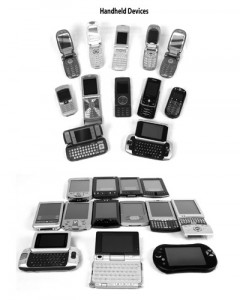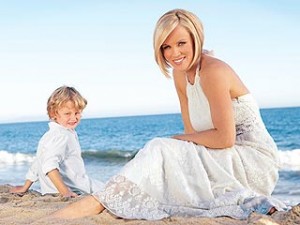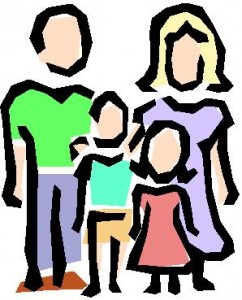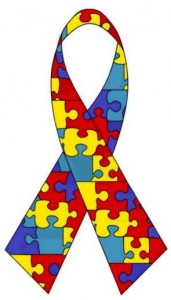I’m sure you’re aware by now of the dialogue going on over at The Thinking Person’s Guide to Autism, and if not… it’s probably a good time to give it a once over. Keep in mind that there are some very long posts and, depending on when you read this, more coming soon… make sure you set aside some time before popping over.
I’ve been biting my tongue through this “dialogue” for a variety of reasons. If you don’t want to go into it with any preconceived notions from yours truly, go there now before reading my post.
How this all started
Let’s just be clear on where this all originated. The “non-disabled parent” wrote a post (that you can read here) about an imaginary parent going to a movie that made rude remarks about Down Syndrome and used the R word and so forth… he imagined how that parent would feel if that parent had a child with Down Syndrome and had to hear this in the movie and all the rest of the audience laughing at it.
In response, the “disabled adult” (autistic) took great offense (you can read it here) to this in that he can’t possibly know what it’s like to be disabled and has no right to be so offended.
Obviously this is a very short summary and I’m paraphrasing, so please feel free to read those two posts to understand exactly what transpired.
But to reiterate… there is now a “discussion” about what parents can and can’t understand, can and can’t discuss and who the real “advocates” are… based on a parent writing about how another (imaginary) parent might have felt.
He didn’t imagine himself being a child with Down Syndrome… he wrote about how a fellow parent might feel.
Apple, meet orange… begin discussion about steak.
Where does this discussion lead?
Hopefully to a good place, hopefully some really good mutual understanding and maybe… if we’re really lucky, even teamwork toward the future will come of this.
However, there’s always different people who find different meanings from all things and therefore, there may also be some much more… well, I would call them “less positive” possible outcomes.
As one person linked to the discussions, I replied to their link saying that I’m biting my tongue.
A woman replied to me, this is what she wrote:
Me: Autistic parent of an autistic child
I’ll comment on this tomorrowPerson without a disability
Why can’t you just come out and say it?
I did not reply to her, I once again bit my tongue because I did not see any possible good outcome from a discussion that begins in that tone.
Still, I really wanted to ask… Is this how we are to address each other from here on out? Is this truly what it’s coming to? Are we, two groups who are fighting the labels that people place on us, going to now refer to each other using labels?
What’s better is… this woman has no idea if I have Autism or not. This was a completely presumptuous reply based on my “biting my tongue” comment.
Is this truly the road we’re going to go down? Is this going to be a benefit to anyone?
Communities?
Adding to the further separation and division, adding to the need to be labeling people in the effort to come together and abolish labels… we now have the Autism Community, Autistic Community, Disability Community and Non-Disability Community… and those who feel that some people belong in multiple communities while others don’t belong in any communities at all.
What does this all mean?
As a group, we’re asking society for acceptance of those that are different… yet we can’t even accept the differences in each other.
We fumble over ourselves declaring superiority, inferiority, privilege, rights, responsiblities and more… in an effort to separate and divide ourselves, to judge one another, label each other and “feel about” each other… all the while telling outside observers to simply accept the differences within us all: gender, race, income, special needs, etc.
You might as well get money management advice from a random homeless person.
Steak
The meat of the discussion, which everyone is discussing but few can seem to agree on, is that we need to listen to each other, talk to each other and work together.
There’s an old saying… “Believe in yourself and others will believe in you too“. In this case, we have to accept each other so that others will accept us as well.
And by us, I don’t mean “non-disabled parents”, I don’t mean “disabled adults”… I mean us. All of us. Advocates. People. Human beings.
Telling each other to shut up or to speak up or what to say or what not say is not the best message to send to the world, it’s not the lesson we wish of others to learn, it’s not the example we need to set.
We all have a vision of how best to educate the world, we all have a vision of how everything would work the best… we all have our own visions. That’s part of what makes us all unique. Those visions all come from having a different life, different experience, different education, different soul…
So long as our visions create conflict, none of them will ever come to life. And it won’t be society’s fault. It will be our own.
Apples and Oranges are different, but they’re both good for the world. They both grow, reproduce, respond well to proper caring and nurturing… and at the end of the day, they’re both fruits.
In fact, maybe they’re not so different after all.
I really hope for the best in these discussions so that we can accept each others differences, rejoice in our commonalities and find a way to work together in educating others how to do the same.













